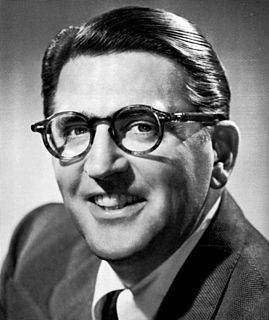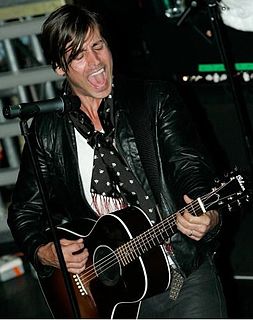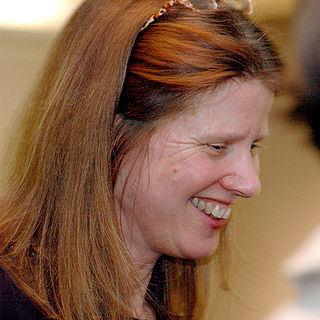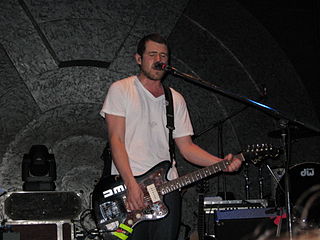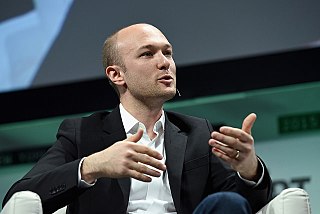A Quote by Daniel Handler
Like most writers, I look back on all of my finished works with utter regret, and the trouble with writing a series of novels is that you have to go back and read them, and make sure that you haven't forgotten anything you've created, and then when you do that, you're faced with your own mistakes on every trick, from the wrong word in places to entirely the wrong incident.
Related Quotes
I've never been satisfied or even pleased with a film that I've done. I make them, I'm finished, I've never looked at one after. I don't like them because there's a big gap between what you conceive in your mind when you're writing and you don't have to meet the test of reality. You're home, you write and it's funny and beautiful and romantic and dramatic, and then you have to show up on a cold morning, and you don't have enough of this and this goes wrong and you make the wrong choice on something and you screwed up and you can't go back.
Be proud of your mistakes. Well, proud may not be exactly the right word, but respect them, treasure them, be kind to them, learn from them. And, more than that, and more important than that, make them. Make mistakes. Make great mistakes, make wonderful mistakes, make glorious mistakes. Better to make a hundred mistakes than to stare at a blank piece of paper too scared to do anything wrong.
If your kids remember anything, it's the fact that you were there. You're gonna fail every day, you're gonna make mistakes, you're gonna do things wrong, but as long as you're there, they remember that. And I see that. Our kids are so young, but they know that we're at every basketball game. We take them with us to places, we engage them. It's not helicopter parenting we just keep them around us. It's that bond. If you lose that it's hard to get it back. I think by showing up, kids, they're always connected to you.
I believe that should is one of the most damaging words in our language. Every time we use it, we are, in effect, saying that we are wrong, or we were wrong, or we're going to be wrong. I would like to take the word should out of our vocabulary forever and replace it with the word could. This word gives us a choice, and we're never wrong.
Now, I don't mean to say that being wrong is the same thing as being creative. What we do know is, if you're not prepared to be wrong, you'll never come up with anything original. If you're not prepared to be wrong. And by the time they get to be adults, most kids have lost that capacity. They have become frightened of being wrong. And we run our companies like this, by the way, we stigmatize mistakes. And we're now running national education systems where mistakes are the worst thing you can make.
I had read [Charles] Dickens's novels were often published serially. I thought it would be fun to write a book, just sitting down and writing a chapter every day, not knowing what would happen next. So that's how I wrote the first draft. And then of course I had to go back and make sure everything worked and change things.
It's a hard thing to examine and difficult to speak for other writers, but when I look at my own writing there is often too much reticence. And that's a flaw I have as a person as well. I'm too reticent. I'm non-confrontational to a fault. And I'm risk-averse, which probably shows in my sentences. The aversion to long lines, the tendency to strip things back and be spare. My writing is an act of erasure that's tied up with my personality. I can easily produce a ninety thousand word chunk of writing and then cut back and back until I've only got ten thousand words. Or nothing.
If you do what you think is right for the benefit of everybody and everything and you make decisions, to go back and regret them afterwards - it's a futile experience and it's not worth thinking about. Because life just unfolds. Provided you do your best and you think you're on the right track, you can only be right or wrong. But to regret it - I don't think there are any huge errors or misdemeanors.
I think that the whole idea of ‘no regrets’ was always a silly idea to me, because of course I regret all the places I went wrong, but that’s what creating anything, and being human, is all about. Of course if I could go back and knew what I know now, I absolutely would do it differently, I’d do it the right way, but part of being human is that we can’t go back, we can only hope that if we come across that moment again, we’ll do it the right way.
Do let him read the papers. But not while you accusingly tiptoe around the room, or perch much like a silent bird of prey on the edge of your most uncomfortable chair. (He will read them anyway, and he should read them, so let him choose his own good time.) Don't make a big exit. Just go. But kiss him quickly, before you go, otherwise he might think you are angry; he is used to suspecting he is doing something wrong.
When you're starting a company, almost anything that can go wrong will go wrong, and it will probably look like and feel like you made the absolute wrong decision to start the company. If you're not absolutely determined to solve a problem or see something through, it might not make sense to keep going.



